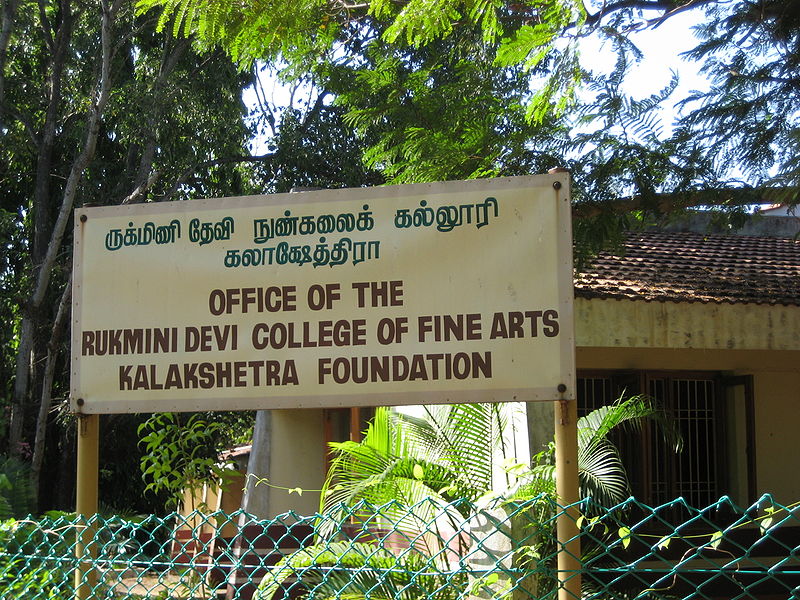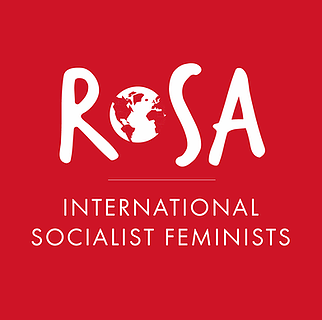Kalakshetra sexual harassment: nothing new in the academic world

In a whirlwind week for the prestigious classical academy, accusations of sexual harassment against Kalakshetra faculty in Chennai quickly developed into a massive scandal involving open student protests, a shabby and ham-fisted attempt at a cover-up, and an investigation by the state government leading to an FRI against and arrest of faculty member Hari Padman. This case has shaken to its foundations one of the core institutions of the Brahmin and Hindu upper classes in South India, and yet demonstrates a truth innately known to students across communal and caste barriers: that the rich and powerful will do all they can to protect their own.
“We Have Investigated Ourselves And Cleared Us Of All Wrongdoing”
The protests in March and April were the beginning of public attention, yet the history of sexual harassment goes back years. The case of Meera Krishna, a Bharatnatyam student who withdrew in 2019, and Student X, 2012-2018, demonstrates this.
Both allege that Padman verbally assaulted them repeatedly both in public and private as well as propositioning them, while complaints to director Revathi Ramachandran (also the head of the Internal Committee) fell on deaf ears. Ramachandran in her attempt to cover up the abuses went so far as publicly lining up the students and demanding they publicly expose themselves as victims, threatening them with legal action, and giving Padman an award. It deserves mention that he is only one of four teachers in the school who have been accused.
Such coverups are well familiar to young women in academia; behind recent high-profile cases of sexual abuse at Banaras Hindu University and Presidency University Kolkata, lies a festering cesspool of toxic academic culture. Any woman who has spent significant time in academia has a personal story to tell either of their experience or that of a friend. Coverups work on a system of cronyism: administration and faculty are often hired out of one academic or caste community, having ties to police and local government as well. A woman who approaches police having been sexually harassed or assaulted will face an uphill struggle as the police consider the suppression of these cases to be their job rather than resolution. Even attempting to report such a case can have negative consequences when confidentiality is broken between the victim and police. Institutions in the drive to protect their own name will do everything they can to destroy the accuser–threats of retaliation, public humiliation, legal maneuvering and even using the police as their private goons to harass and intimidate women. It should be noted that this happens to teachers just as well as students.
So-called “independent investigators” are often called in as a last resort to produce a loaded verdict in favor of the institution and its guilty associate. Whether personal friends or paid actors, more often than not they are relied upon to find the answer that the institution is looking for. “Fact-finding committees”, even when staffed mostly with honest and well-meaning members, are often planted with saboteurs who interfere with investigation and water down policy recommendations to decrease future scandals. Furthermore, their meagre recommendations frequently fail to be implemented by schools which have neither the desire nor the courage to see them through.
Treating The Symptoms, Not Curing The Disease
An education institution which has built itself on the styling of an elite and upper-class haven is incapable of truly reforming. To implement effective change would amount to an admission that the system was flawed from the very beginning, or even more so, designed to uphold the oppression and exploitation of women. The Brahmin community cannot face up to its own participation in these crimes which it considers to be the realm of the “inferior” castes. Rather it closes ranks and does the bare minimum under pressure to alleviate and divert attention. Though Hari Padman and the other professors have been sacked, in all likelihood they will not face any real consequences. Serial offenders are simply shuffled from place to place, opening one door when another closes. Their upper class and upper caste cronies will always provide them with an out which allows them to retain their lifestyle complete with a new set of victims. Such is part of an unwritten code of the upper classes who understand the prime directive is to preserve the supremacy of their own community.
In terms of the victims of sexual harassment, “soft retaliation” or “soft blacklisting” is the name of the game. While the days of openly slut-shaming and otherwise denouncing victims openly using sexist, communalist and casteist slurs is coming to a close, the practice of punishing victims through isolation is in full swing. Whether driven by whisper campaigns or simply a matter of public knowledge, students and staff who fight against victimization are seen as problematic and controversial. Even institutions which take a neutral stance or consider themselves uninvolved prefer to provide opportunities to uncontroversial candidates and victims who speak out may find that for mysterious reasons, their funding dries up, opportunities are given to less qualified candidates, and potential collaborators or supervisors are oddly cold and distant. In its genteel and aloof manner, academia slowly smothers anyone who dares break the silence.
It Will Take A Movement To Win
In spite of all of these efforts to silence young women, a robust protest movement is in full swing. The Indian people are renowned worldwide for our willingness to fight back in spite of the odds, and this is just one of many examples. Protests raise awareness and shape public opinion as well as show to those in power that we will not tolerate abuse. They provide an arena where victims can share in collective experience and feel empowered to shape their own destiny. And real victories have been won when sustained pressure is applied to the right places. Public fervor and mass action are the fuel that drives political change. Yet in this same manner, the spontaneous combustion of fuel can only have limited and localized effects. A political engine must take shape in order to drive a movement forward and move it beyond its limited scope into the wider world. Without building political power, we will only be able to win the limited concessions that the ruling class is willing to give us in order to shut us up. Only through sustained and consistent organized activity can women build the necessary power to realize real demands. We are not satisfied with scraps from the table.
Ending sexual harassment and abuse in schools is about more than just sacking teachers. Making the national sex offender registry public and barring offenders from educational work can help prevent sexual predators from becoming teachers. Effective security measures and even things as simple as street lights can cut crime. A committee of students and teachers, supported by a robust students union, and equipped with the power to take disciplinary action against offenders would do more than help students come forward and provide a real deterrent to sexual assault on campus. It also lays the foundation for further victories down the road by creating a political organization which exists to empower female students. In the long term, cultural and economic issues must be addressed. In the vast majority of rape cases, the offender is someone who is personally known to the victim. We must end the rape culture and the economic disempowerment of women which prevents victims from coming forward and from being heard when they do come forward.
All around the world, from America to Iran to South Africa and beyond, women are rising up and taking charge. In Ireland, ISA and ROSA comrades succeeded in overturning an abortion ban which was literally written into the constitution, where in Brazil, our comrades are still fighting for the expansion of protections against femicide, and in the United States, our socialist city council member Kshama Sawant in Seattle was part of the movement to successfully make Seattle the first sanctuary city for the right to have an abortion in the way of the historic overturning of abortion rights by the Trump-appointed Supreme Court. These victories do not come from spontaneous local outcry, but rather from sustained political action as part of a broader socialist feminist movement. And what the movement for women has done in other countries, we can do here.
Join The Fight!
International Socialist Alternative (ISA) and Campaign ROSA are active all around the world. Our 2023 international conference in Vienna in March drew members from 20 countries, as well as many more online guests from across the globe. We are building our forces here in India, where nearly one-fifth of all women live on Earth. The need for international solidarity is mutual and reciprocal. If you are ready to fight back, contact us today about joining. We have nothing to lose, and a world to win!






